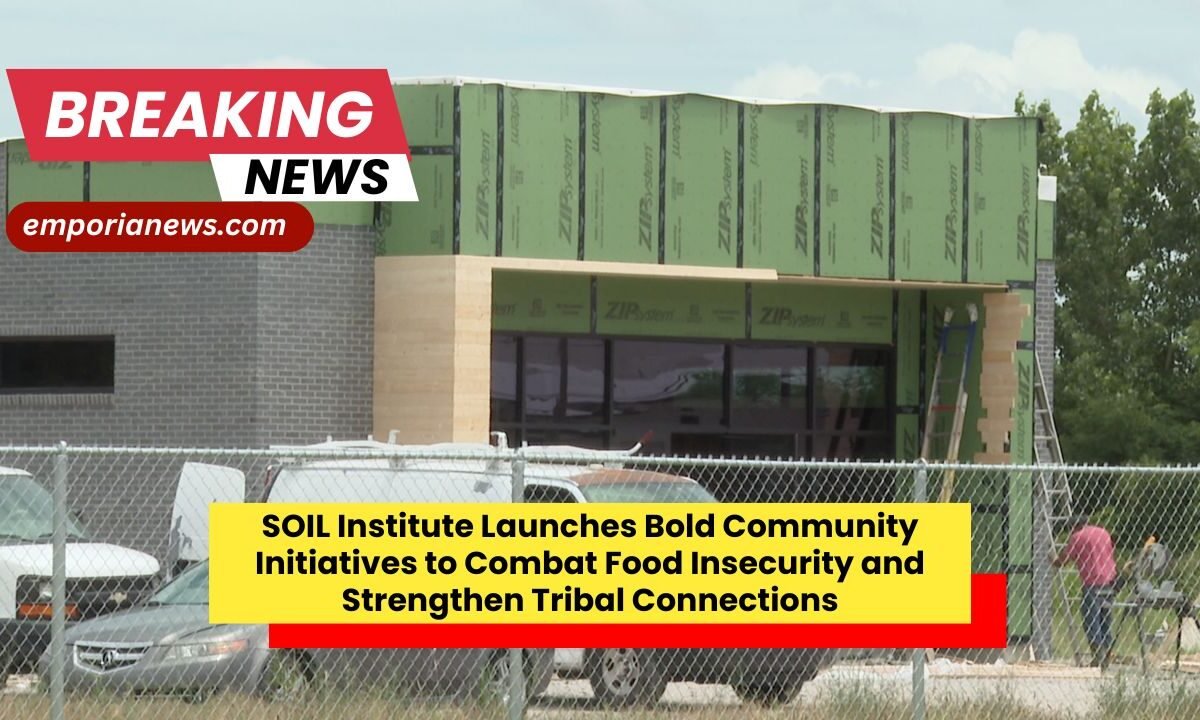A newly formed non-profit organization, The SOIL Institute, short for Serving Our Inner Light, is making waves in Tulsa with a mission rooted in community well-being, sustainability, and tribal empowerment.
Spearheaded by Yousef Binageil, a proud member of the Cherokee Nation, the Institute focuses on addressing essential human needs through five core pillars: food, water, health, shelter, and belonging.
Championing Change Through Core Initiatives
The SOIL Institute’s mission is to nurture underserved communities by launching strategic, impact-driven projects across Tulsa.
With a commitment to holistic well-being, the organization is already making strides with the development of its flagship initiative—a solar-powered micro grocery store designed to address food insecurity in food deserts.
A Groundbreaking Model: The Storehouse Micro Grocery
One of the most ambitious efforts by the SOIL Institute is the construction of “The Storehouse”, a 2,300-square-foot, solar-powered micro grocery store located on Pine Street.
This store will offer locally sourced, healthy food options and feature vending machine-style access, making nutritious food more accessible to low-income neighborhoods.
According to Binageil, this innovative grocery model serves multiple purposes:
- Supports local farmers and producers
- Boosts the local economy
- Fills gaps in food availability across underserved communities
“The goal is to provide essential services in areas labeled as food deserts,” said Binageil. “We’re hoping to scale this model to serve other areas and even different types of community needs in the future.”
Deepening Tribal Collaboration Across Oklahoma
Binageil’s vision for the SOIL Institute goes beyond just physical resources.
As a member of the Cherokee Nation, he’s passionate about fostering unity and involvement among the Five Tribes of Oklahoma—Cherokee, Chickasaw, Choctaw, Muscogee Creek, and Seminole.
He believes these communities should play a central role in defining the values and priorities of the non-profit, helping ensure that its initiatives genuinely reflect the needs and aspirations of Indigenous populations.
“We want people to feel seen and heard,” Binageil said. “What we do now will shape the future for the next generation.”
A New Project Every Year Through 2030
The Storehouse is just one of five unique models SOIL has in development. Others include a community bus station, a university-based project, and more—all rooted in the organization’s five key focus areas.
Binageil confirmed that a new major initiative will be introduced each year until 2030, reinforcing SOIL’s long-term strategy to elevate Tulsa’s community infrastructure.
A Timed Mission with Lasting Impact
While the SOIL Institute’s presence in Tulsa is set to conclude after five years, its projects—especially the Storehouse—will remain active and community-led.
The long-term plan is for these initiatives to become self-sustaining, with residents taking charge of operations and expansion.
“We’re not here to lead forever—we’re here to ignite change,” Binageil said. “Ultimately, we want community members to take ownership, put their roots in the soil, and grow something lasting.”
The SOIL Institute is laying the groundwork for transformational change in Tulsa through innovative, community-based projects.
With a focus on sustainability, equity, and Indigenous leadership, this non-profit aims to leave a legacy of empowerment, health, and connection.
As its initiatives unfold through 2030, the organization invites the community to participate, lead, and thrive in building a better future.




